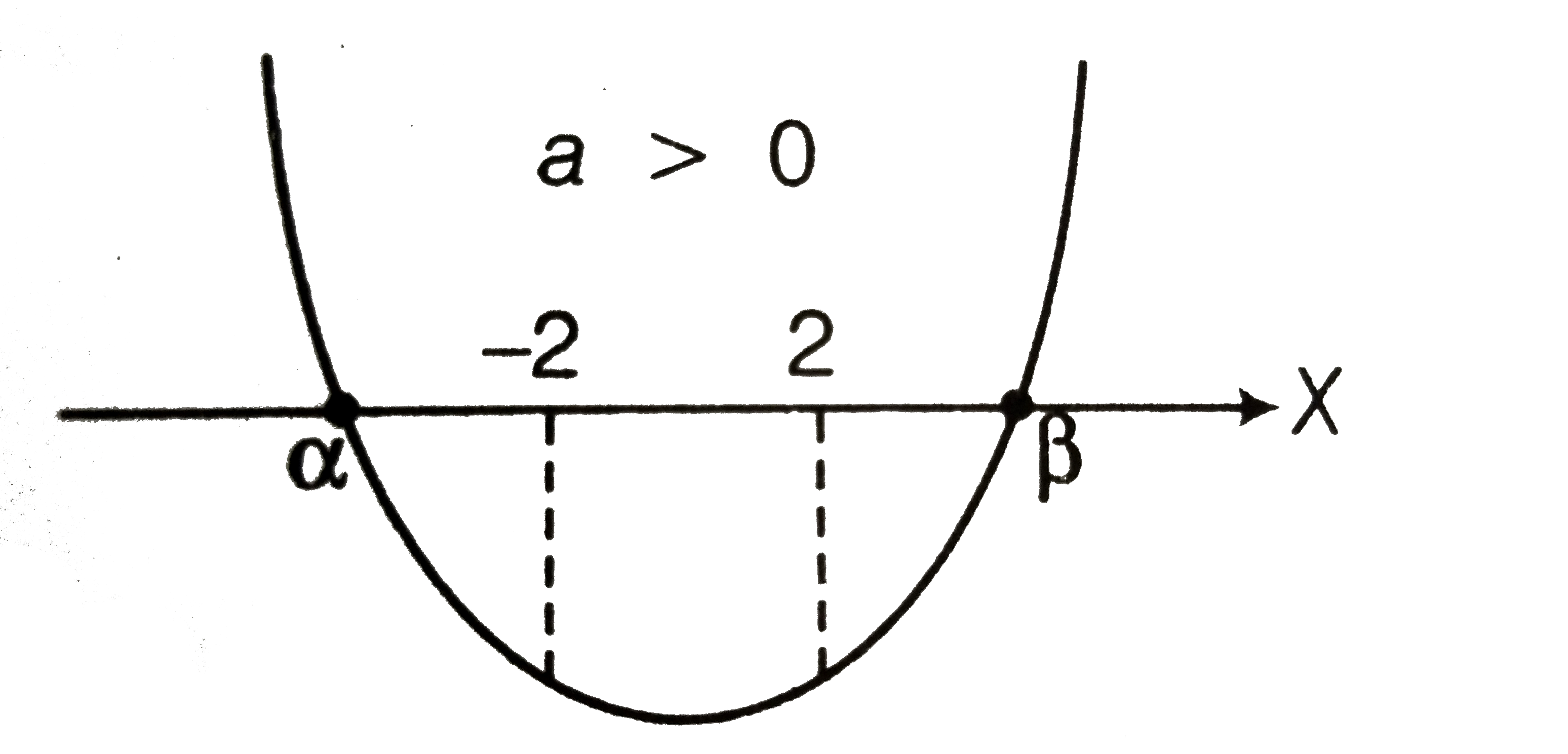ax2+bx+c=0(a>0), has two roots αandβ such α<−2andβ>2, then Solution in Kannada
A
4a−2|b|+c<0
B
9a−3|b|+c<0
C
a−|b|+c<0
D
c<0,b2−4ac>0
Video Solution
Text Solution
The correct Answer is:A, C, D
Here D>0

b2−4ac>0
or b2>4ac…… i and f(0)<0
⇒c<0..ii
f(1)<0
⇒a+b+c<0………iii
f(−1)<0
⇒a−b+c<0………..iv
f(2)<0
⇒4a+2b+c<0………v
f(−2)<0
⇒4a−2b+c<0...............vi
From Eqs i and ii we get
c<0,b2−4ac>0
From Eqs. (iii) and (iv) we get
a−|b|+c<0
and from Eqs (v) and (vi) we get
4a−2|b|+c<0
|
Similar Questions
IF α,β are the roots of ax2+bx+c=0 then α2+β2α−2+β−2=
View SolutionIF α,β are the roots of ax2+bx+c=0 then (αβ−βα)2=
View SolutionIf α,β are the roots of ax2+bx+c=0 then (1+α+α2)(1+β+β2) is
View SolutionIF α,β are the roots of ax2+bx+c=0 then the equation roots are α/β,β/α is
View SolutionIF α,β are the roots of ax2+bx+c=0 then the equation whose roots are 2+α,2+β is
View SolutionIf α,β are the roots of ax2+bx+c=0, αβ=3 and a, b, c are in A.P., then α+β =
View Solutionयदि α,β समीकरण ax2+bx+c=0 के मूल हों, तो वह समीकरण जिसके मूल 2+α,2+β है, होगा
View SolutionIf αandβ are roots of ax2+bx+c=0 then the equation whose roots are α2andβ2 is
View Solution
